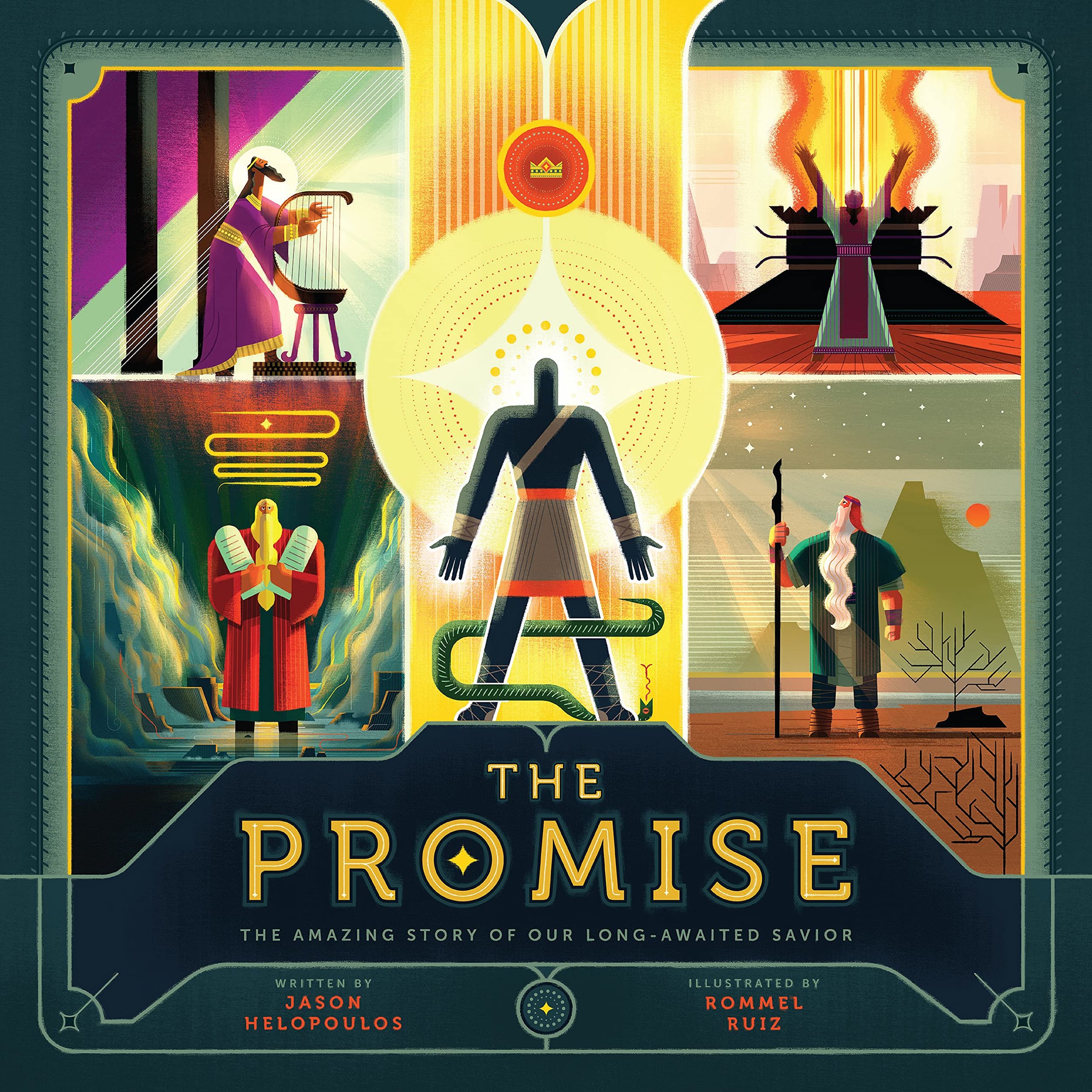Imagine being utterly and completely convinced of the existence of God, His holiness, and His justice while at the same time being utterly convinced of humanity’s sinfulness and inability to please God. At the same time you are also convinced of your own personal sin and God’s righteous judgment against it. Now, if you are in that position it would seem you are ripe and ready to receive the good news of the gospel.
Yet, imagine that you are also terrified of the judgment of God because the theology you have been taught has not given you a path to confidence or assurance in your own salvation. Imagine being in a state where you know that you know that you need salvation, and yet not having the ability to know whether or not you have received salvation. That is what Martin Luther was dealing with before an experience meditating on Romans 1 changed him and the history of the Christian church and Western world.
October 31st marked the 500th anniversary of Martin Luther, a German monk, nailing 95 statements of disagreement with official church teaching to the door of a church in Wittenberg, Germany. This event is widely considered to be the starting point of the Protestant Reformation, a movement that shook Europe for generations.
If you do not know much about the Reformation, your understanding may go like this: This was a controversy amongst the intellectual elites for power and control over the Church’s doctrine. Maybe you’ve heard that politicians soon got involved and it was no longer just a religious movement but a political one as well. Those things are true. But for Martin Luther, the linchpin of the Reformation was deeply personal and spiritual. It’s as simple as this, one minute he had no assurance of salvation, and the next minute he did. One minute all of his doctrine and study of the Scriptures had done nothing to assure him that Christ’s sacrifice had paid for his sins, and the next minute he was thoroughly convinced that he had received that it by faith.
How did he come to this point? By studying Romans chapter 1.
[16] For I am not ashamed of the gospel, for it is the power of God for salvation to everyone who believes, to the Jew first and also to the Greek. [17] For in it the righteousness of God is revealed from faith for faith, as it is written, “The righteous shall live by faith.”
Have you ever stopped to reflect on verse 17? In the gospel God’s righteousness is revealed from faith for faith. The righteous shall live by faith. In Luther’s day this passage was understood to refer to faith that is achieved. Meaning, in order to be right with God you had to live righteously in order to achieve a life of faith. Faith was proved by righteous living. So the quotation from Habakkuk that says “the righteous shall live by faith” means “if you want to live, you better live righteously.” But Luther was stunned and awed by the righteousness of God, although at first he did not see it in a positive light. He saw the righteousness of God as being unattainable for an unrighteous human. So then the gospel that had so much power in verse 16 actually went like this:
- God is perfectly righteous and must punish the unrighteous.
- Man must be righteous in order to live.
- The way to receive righteousness is by exercising enough faith and righteous living in your day to day life.
- Then, if you live righteously enough, you can be justified which Luther understood to mean “made righteous.”
- Righteousness is the quality of being morally right or just.
But Luther came to disagree with this interpretation while meditating in his tower. The message that Luther discovered in what he would later call his “tower experience” has become the majority position of the Protesting or Protestant church since his day. And lest there be any confusion, we are Protestant. Some might say that because we are not a member of a Protestant denomination, we are not. Some may even argue that the label of Protestant is no longer even necessary because after all the reformation is over so get over your labels and seek unity. But I want you to see that as long as challenges remain to the core Biblical issues the reformers protested against, the word Protestant remains a helpful label in order to communicate where we, as a local body of Christ stand, on certain issues. We will describe those issues soon, but first let’s look at the linchpin issue of the gospel in Romans 1:16-17. What is the real message of Romans 1:16-17?
- The gospel, or good news, displays God’s power to save everyone who believes.
- This good news is available to everyone regardless of ethnicity, sex, or background.
- God’s righteousness is attained by the gift of God.
- This righteousness is received by faith.
Luther’s own words: “The righteousness of God is that by which the righteous person lives by a gift of God, that is by faith.”
So can man display God’s righteousness? Yes. Previous to this experience Luther would have said no, because of what he had seen in his own heart. He understood that living in righteousness was essential to right standing before God; in his mind it was unattainable.
But the difference is between achieved righteousness and received righteousness.
So here is the issue on which the Reformation started: justification by faith alone. But this wasn’t the only message of the Reformation. There were five core rallying cries or statements of the Reformation, all in Latin. It is important to realize that this was a movement of the people, some illiterate or uneducated, so these five statements were used to cut to the core issues. These rallying cries were called the “Solas” (sola being the Latin word for ‘alone’ or ‘only’) because each statement states the primacy of a key issue. I will list each of the “Solas” of the Reformation below with a definition of the key term, a description of what the statement says ‘yes’ to, and a statement of what the statement says ‘no’ to. There are many passages that can be stated for each. Rather than citing an exhaustive list, I have quoted one verse to give weight to each point.
1. Sola Scriptura – Scripture alone
- Scripture – God’s written word, the Bible
- YES – Scripture alone is our highest authority. Not Scripture is our only source of knowledge or authority.
- NO – Church tradition or any tradition of man being on equal standing with God’s word.
2 Timothy 3:16-17 [16] All Scripture is breathed out by God and profitable for teaching, for reproof, for correction, and for training in righteousness, [17] that the man of God may be complete, equipped for every good work.
2. Sola Gratia – Grace alone
- Grace – God’s unmerited favor, a gift.
- YES – Salvation comes only as a gift.
- NO – The need to either earn or deserve salvation.
Ephesians 2:8-10 [8] For by grace you have been saved through faith. And this is not your own doing; it is the gift of God, [9] not a result of works, so that no one may boast. [10] For we are his workmanship, created in Christ Jesus for good works, which God prepared beforehand, that we should walk in them.
3. Sola Fide – Faith alone
- Faith – Trusting God and His promises.
- YES – God’s gift of salvation is only received by faith.
- NO – Good works being necessary in achieving salvation.
Romans 3:28 [28] For we hold that one is justified by faith apart from works of the law.
4. Solus Christus – Christ alone
- Christ – Jesus the Messiah who is God’s Son and God Himself
- YES – We receive Christ’s righteousness and that is the only way to be right before God. Christ is the only possible redeeming sacrifice and mediator.
- NO – Other mediators such as saints or Mary or the need for further sacrifice or penance.
1 Timothy 2:5-6 [5] For there is one God, and there is one mediator between God and men, the man Christ Jesus, [6] who gave himself as a ransom for all, which is the testimony given at the proper time.
5. Soli Deo Gloria – Glory to God alone
- Glory – Praise and adoration for one’s significance and beauty
- YES – We were created to bring glory to God and God only.
- NO – Bringing glory to ourselves, our institutions, our traditions, or other humans created to glorify God.
1 Corinthians 10:31 [31] So, whether you eat or drink, or whatever you do, do all to the glory of God.
Ok, so those are some of the main points of the Reformation but the question remains, “why should we still care?” Are the issues of the Reformation still significant today? As I said earlier, I believe the label of Protestant and the movement itself remains significant as long as the issues it addressed are under attack. So the way to answer the question regarding the significance of the Reformation is to first ask, what attacks remain against the 5 Solas?
1. Sola Scriptura – This issue is constantly under attack as people continue to seek out other sources of authority. Some attacks are easy to see, such as those who believe science or archaeology have disproven the Bible. Others attempt to usurp the Bible’s authority with psychology. Some churches have traded in God’s directions for the church and sought after secular marketing and sales techniques to grow their churches. Other churches are stuck doing things “the way we’ve always done it,” a modern form of church traditionalism that the Reformers fought against. Still others trust their own reasoning. The individualism of our day teaches people that they are their own authority; therefore, whatever feels good or seems right to them must be right. There are certainly numerous challenges to the authority of Scripture today.
2. Sola Gratia – The doctrine of sola gratia is under attack any time someone preaches a gospel of salvation coming by any means other than as a gift. I recently heard someone preach that the way to be right with God is to love God and love your neighbor in accordance with Jesus teaching. However, this message left out the fact that no human can perfectly do that. So therefore, in order to be right with God I have to have my sin atoned for and be regenerated or reborn. It is only after this rebirth that I can love God fully. Any effort to preach obedience without grace is an attack on sola gratia.
3. Sola Fide – The uniqueness of faith is attacked when we put our confidence in what we see over what we cannot see. Many people object to the gospel because there is too much that they cannot see and explain. You cannot be saved by what you can see.
4. Solus Christus – The truth that Christ is the only way of salvation is attacked by false religions in obvious ways, especially by those who say there may be multiple ways of earning favor with God. However, there are also some more subtle attacks. Any time we put ultimate confidence in a human we are creating for ourselves a false savior. Politicians can be false saviors as we hope in them to solve our problems. A friend or a family member maybe be a false savior if I trust in them for ultimate emotional support. Any time we trust in a created being for our wellbeing over Christ, we have created a false savior.
5. Soli Deo Gloria – God created us to glorify. We are always looking to bring glory to something. For that reason many of us seek to bring glory to ourselves. In fact, I would say that every human heart wants to glorify itself. You can see it in a child when they walk for the first time, they long to be honored and celebrated. When they do something impressive and you do not notice, they are quick to tell you! Any time we seek to bring glory to something or someone other than God, we need to be reminded of our purpose in “Soli Deo Gloria.”
So trust me, the message of the Reformation is still vital today. In fact, it is likely more vital than ever. The growth of technology and the speed of communication have resulted in false doctrine being even more prevalent and pervasive. We need now more than ever to stand on God’s Word and defend the truth of the gospel in a world that is against us.
We stand for our faith with the assurance that Martin Luther once did not have. We stand knowing that we are saved not because of what we have achieved but because of what we have received.
S.D.G.
Pastor Tim
Note: this article is a written version of a sermon preached on 10/29/2017. To listen click here http://fellowshipdalton.com/podcast/2017/10/30/reformation-october-29-2017



















